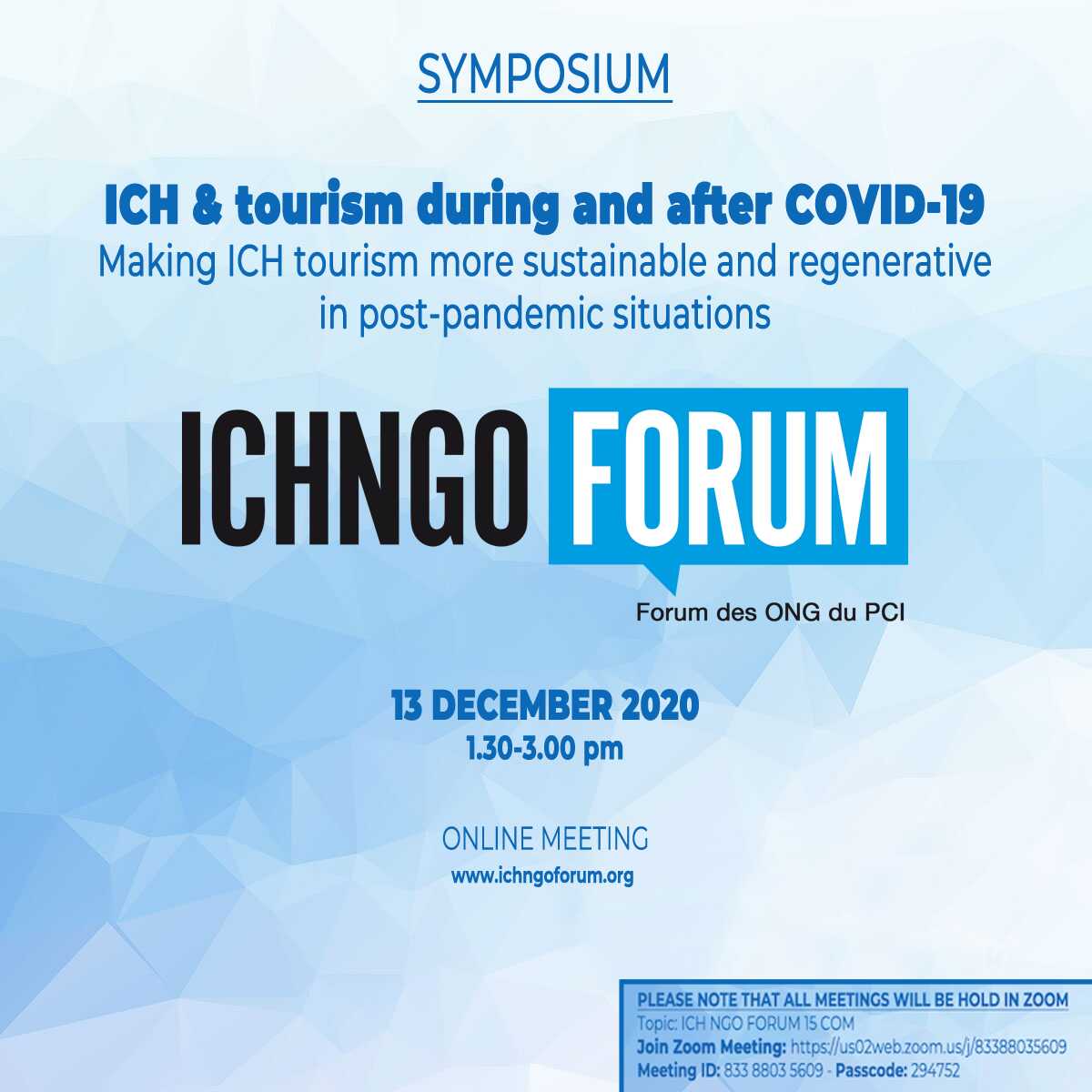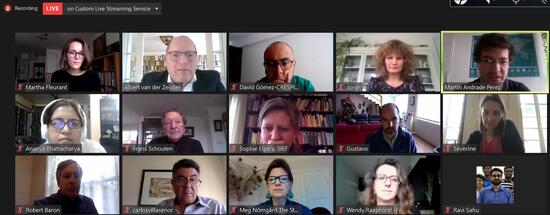During 2020 the COVID-19 pandemic presented the intangible heritage practitioners with new challenges. Travel and quarantine restrictions and fears of infection significantly reduced tourism. During the symposium, David Gomez, of Crespial, noted that Covid -19 was especially harsh on indigenous communities in Latin America, but also in other continents. With an extra challenge that culture is not a priority issue in many countries.
‘Responsible tourism’
Robert Baron (SIEF) stressed that we could learn from the 'pause', moving forwards to a more sustainable and regenerative tourism to build back stronger post-COVID-19. Baron mentioned possible restrictions on access to rituals, photography and recording, countering over tourism. According to Anabela Correia ‘responsible’ tourism should be developed, with a central role for the ICH communities. Some of the proposals she did, will also contribute to ecological sustainable development goals, like for instance special conditions for cycling, as INATEL has suggested in Portugal.
Strengthen initiatives that arise directly from the communities (not from external partners) was one of the suggestions of David Gomez. Ananya Bhattacharya also highlighted community-based approaches. Community museums or Eco museums could help in exploring participatory processes by engaging communities and give access to craft artist to make a digital showcase of their work. Brand rural artists habitats as tourist destinations, was one of her other suggestions.
In the final presentation of the symposium Martha Fleurant and Jorijn Neyrinck of Werkplaats Immaterieel Erfgoed (Belgium) presented material prepared for an online toolbox, useful for communities and State Parties to give some guidance for communities wanting to work with tourism in a sustainable way. It demonstates the crucial role of NGOs in the 2003 UNESCO Convention: giving food for thought and reflection and also offer practical tools to work with in the field.
The webinar attracted some 50 participants during the ZOOM meeting and viewers on the ICH-NGO Forum You tube channel.
Presentations during the symposium
- Welcome and Introduction: Albert van der Zeijden, Dutch Centre for Intangible Culture Heritage, on behalf of the ICH NGO Forum
- New Directions for sustainable and regenerative ICH tourism – Building resilience, adapting to change, expanding community agency, by Robert Baron, International Society for Ethnology and Folklore (SIEF)
- Challenges and opportunities for ICH tourism in Latin America after COVID-19, by David Gómez Manrique, Technical coordinator of CRESPIAL
- Responsible and sustainable tourism as a way to promote the Intangible and tangible heritage and the local economies, by Anabela Correia, Director of Tourism Services at the INATEL Foundation (Portugal)
- ICH-based strategies to restart tourism After COVID: Examples from India, by Ananya Bhattacharya, Banglanatak
- Ideas for an online dossier and toolbox on ICH & sustainable tourism, by Martha Fleurant and Jorijn Neyrinck, NGO Workshop intangible heritage (BE)
- Concluding remarks, by Martin Andrade Perez
More information on the ICH NGO Forum can be found here: http://www.ichngoforum.org/
December 2020

